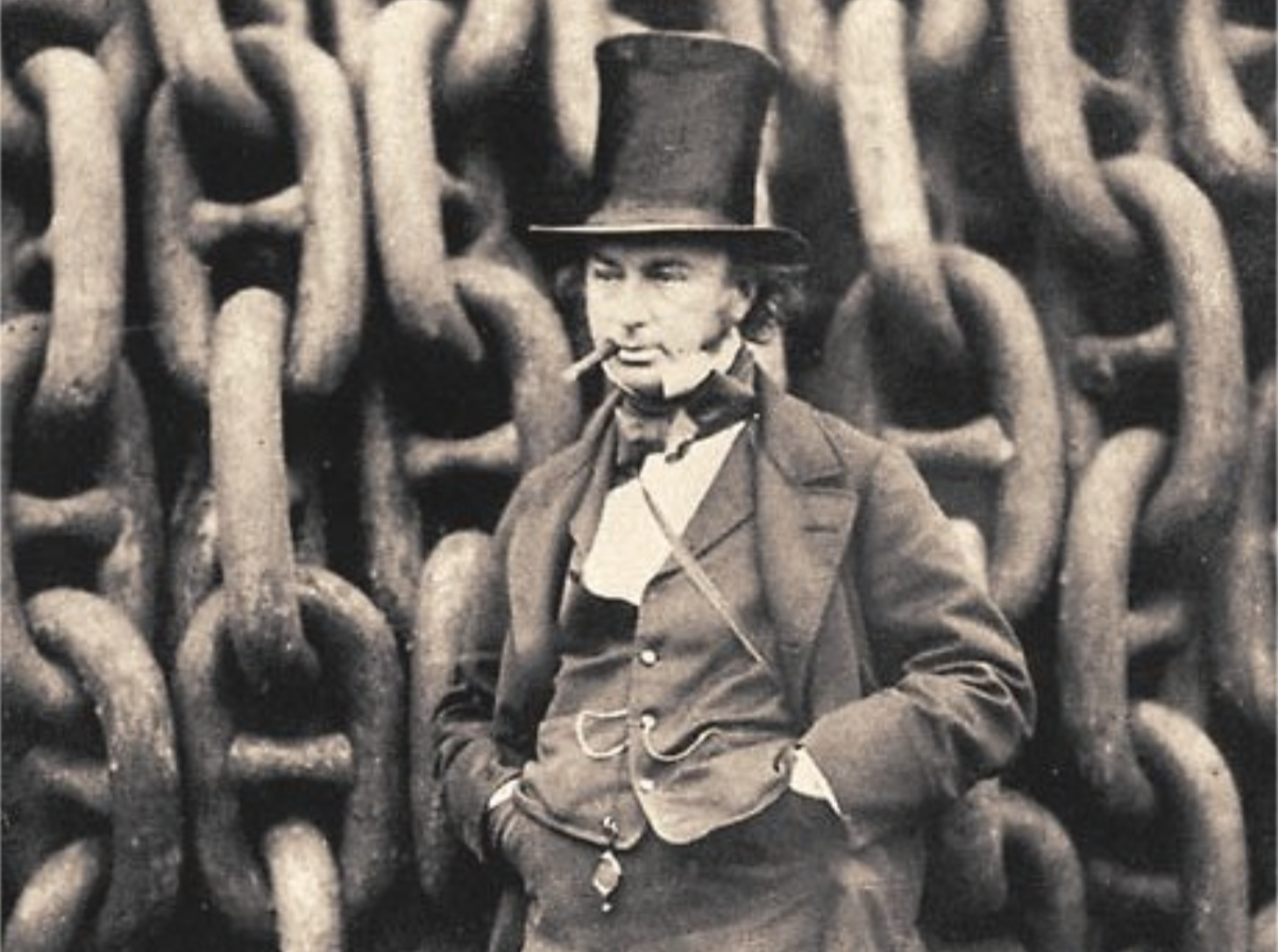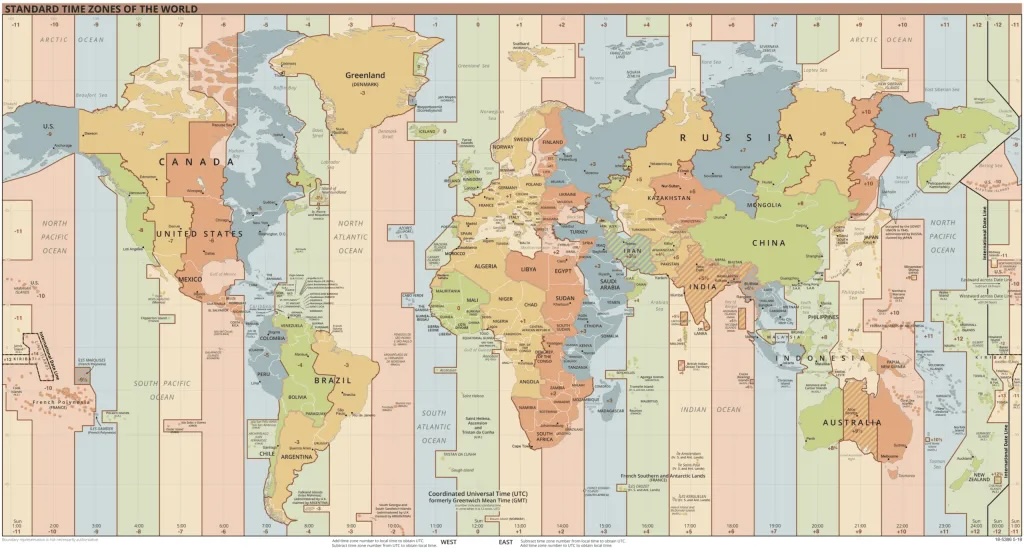Moxie: It's Time To Get A New Watch
Jun 30, 2025
ONE STORY
("Nothing for the Heart". Photo by Thomas Hawk.)
"It’s Time to Get a New Watch"
Time Travel
In the mid-1800s, railroads exploded across Europe. Massive progress for commerce and travel.
But trains didn't just make travel faster–they broke time itself.
It turns out, before trains, every town kept its own time based on the sun. That's fine when trips took days or weeks. But once distant cities were just hours apart, even a few minutes’ difference became a real problem.
Missed connections. Chaos. Frustration. Fixing this meant asking many people–whole cultures–to change how they lived.
And that took some serious moxie to pull off.

(Isambard Kingdom Brunel, "The Genius of the Industrial Revolution.")
Enter visionaries Isambard Kingdom Brunel and Sir George Airy.
Brunel was the brilliant engineer behind the Great Western Railway (GWR). Airy was the Astronomer Royal at Greenwich in London. These men saw what few others could:
Time itself had to be rebuilt.
A New Standard
Thus began a bold and coordinated effort to create clarity: a new, standard time.
While towns clung to their local clocks, Brunel and the GWR adopted Greenwich Mean Time across their entire rail network. Airy provided the scientific legitimacy to back it.
Together, they weren't just proposing a new time zone–they were proposing a new way of thinking about time, coordination, and progress.

(Standard Times Zones of the World.)
Of course, people resisted.
A standard time disrupted daily routines, shattered old agreements, and made familiar habits feel outdated. But Brunel and Airy held the line.
By 1847, Great Britain officially adopted “Railway Time”, and by the 1880s, many countries had followed. In other words:
Trains didn’t just conquer distance.
They invented the clock as we know it.
The Brain
This isn’t just a story about trains.
It’s a story about your brain.
Because here’s the thing: You are the town with local time.
Every belief, habit, and pattern you’ve built has been calibrated to a certain rhythm.
And when change shows up–even if it’s good–it feels like chaos.
That discomfort is real. Your limbic system, your amygdala, your nervous system–they all treat uncertainty like a threat.
Even positive change triggers resistance–not because it’s wrong, but because it’s unfamiliar. Doubt. Discomfort. It’s part of it.
Your brain craves predictability, even when you’re chasing progress.
So when you start dreaming bigger or acting bolder, don’t be shocked when your own “townspeople” push back.
Like Brunel. Like Airy. This is when you have to be a visionary. Even (especially) to yourself.
Hold the vision.
Anchor in clarity.
Expect resistance.
Keep building anyway.
Eventually, your mind catches up.
Your habits shift.
Your new “schedule” becomes the new normal.
And just like the world did with GMT
You adapt to your own progress.
📜 TWO QUOTES
“First they ignore you, then they laugh at you, then they fight you, then you win.”
– Nicholas Klein
"People don't resist change. They resist being changed."
– Peter Senge
🚀 THREE TAKEAWAYS
1. People don’t like it when you change.
That’s not about your vision–it’s about their expectations. Disruption, even good disruption, makes others uneasy.
2. Change is disorienting–especially when it’s working.
Progress often feels like chaos before it feels like clarity.
3. What you need and what’s comfortable are rarely the same.
Growth demands discomfort. Movement requires friction. That’s the cost of forward.
🔍 MOXIE REFLECTIONS
- Where are you asking others to adjust to your new rhythm—and where are you still waiting for their permission?
-
What part of your progress feels most uncomfortable right now? Could that be proof you're on the right track?
-
If you trusted your future more than your past, what bold move would you make this week?
🛠️ TOOLS FOR GROWTH
🧩 PATTERN RECOGNITION: Social Proof Bias
We tend to assume something is right or good if others agree with it.
So when your bold idea meets silence, or even resistance, it’s tempting to doubt yourself. Not because the idea is wrong, but because it’s lonely.
Why it matters:
Social proof bias makes you second-guess what you know simply because others haven’t caught up yet. But if you're doing something visionary, that’s exactly what will happen.
What to remember:
Lack of applause isn’t a warning sign. It’s often the cost of being early.
Trust your clarity–not the crowd.
🧠 MENTAL SKILL OF THE WEEK: Internal Validation
Internal Validation is the ability to root your confidence in clarity and purpose, not in applause or approval. It shifts your focus from “Do they believe in me?” to “Do I believe in this?”
How to use it:
Before you share the idea, take the risk, or propose the change, ask: Is this aligned with what I know to be true? Let your conviction, not consensus, set the tone.
Hold steady–even when the room is quiet, confused, or skeptical. This isn’t arrogance. It’s grounded belief. You don’t need a standing ovation to keep building. You just need a solid reason why.
🌱 ONE MORE THING ('Just for Thomas'. Photo by Rich Carstensen.)
('Just for Thomas'. Photo by Rich Carstensen.)
You don’t have to convince everyone.
You just have to keep showing up, even when they don’t get it yet. Because when you do, you’re not just changing your life...
You’re setting a new time.

